
Abbot, meaning "father", is an ecclesiastical title given to the male head of a monastery in various traditions, including Christianity. The office may also be given as an honorary title to a clergyman who is not the head of a monastery. The female equivalent is abbess.
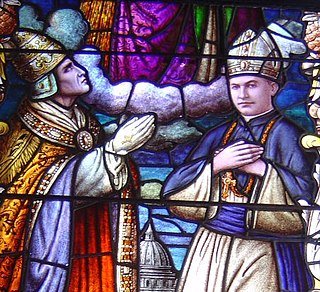
In church governance, a diocese or bishopric is the ecclesiastical district under the jurisdiction of a bishop.

A synod is a council of a church, usually convened to decide an issue of doctrine, administration or application. The word synod comes from the Greek σύνοδος (sýnodos) meaning "assembly" or "meeting", and it is synonymous with the Latin word concilium meaning "council". Originally, synods were meetings of bishops, and the word is still used in that sense in Catholicism, Oriental Orthodoxy and Eastern Orthodoxy. In modern usage, the word often refers to the governing body of a particular church, whether its members are meeting or not. It is also sometimes used to refer to a church that is governed by a synod.
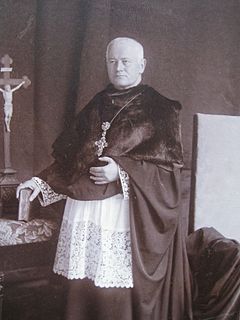
A prelate is a high-ranking member of the clergy who is an ordinary or who ranks in precedence with ordinaries. The word derives from the Latin prælatus, the past participle of præferre, which means 'carry before', 'be set above or over' or 'prefer'; hence, a prelate is one set over others.

In Christian churches with episcopal polity, the rank of metropolitan bishop, or simply metropolitan, pertains to the diocesan bishop or archbishop of a metropolis.
An ecclesiastical province is one of the basic forms of jurisdiction in Christian Churches with traditional hierarchical structure, including Western Christianity and Eastern Christianity. In general, an ecclesiastical province consists of several dioceses, one of them being the archdiocese, headed by metropolitan bishop or archbishop who has ecclesiastical jurisdiction over all other bishops of the province.

An ordinary is an officer of a church or civic authority who by reason of office has ordinary power to execute laws.
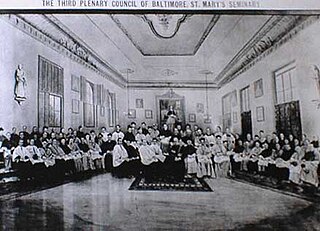
The Plenary Councils of Baltimore were three national meetings of Catholic bishops in the United States in 1852, 1866 and 1884 in Baltimore, Maryland.
In canon law the confirmation of a bishop is the act by which the election of a new bishop receives the assent of the proper ecclesiastical authority.

The Archdiocese of Wrocław is a Latin Rite archdiocese of the Catholic Church named after its capital Wrocław in Poland. From its founding as a bishopric in 1000 until 1821, it was under the Archbishopric of Gniezno in Greater Poland. From 1821 to 1930 it was subjected directly to the Apostolic See. Between 1821 and 1972 it was officially known as (Arch)Diocese of Breslau.
A canonical visitation is the act of an ecclesiastical superior who in the discharge of his office visits persons or places with a view to maintaining faith and discipline, and of correcting abuses. A person delegated to carry out such a visitation is called a visitor. When, in exceptional circumstances, the Holy See delegates an apostolic visitor "to evaluate an ecclesiastical institute such as a seminary, diocese, or religious institute ... to assist the institute in question to improve the way in which it carries out its function in the life of the Church," this is known as an apostolic visitation.
Cathedraticum is a specified sum of money to be paid annually toward a bishop. It is a mark of honour and a sign of subjection to the cathedral church, from which its name is derived.
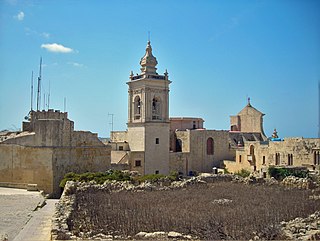
The Diocese of Gozo , is a Latin bishopric (diocese) of the Catholic Church in Malta, and the only suffragan in the ecclesiastical province of the Metropolitan Archdiocese of Malta, together covering the insular state.

An ecclesiastical judge is an ecclesiastical person who possesses ecclesiastical jurisdiction either in general or in the strict sense. Up until 1858 when Ecclesiastical courts were abolished, ecclesiastical judges tried church clergy men in church courts or Ecclesiastical courts. Charges dealt in these courts were often very lenient, especially when dealt to church clergymen.

The Roman Catholic Archdiocese of Luxembourg is an archdiocese of the Latin Rite of the Catholic Church in the Grand Duchy of Luxembourg, comprising the entire Grand Duchy. The diocese was founded in 1870, and it became an archdiocese in 1988. The seat of the Archdiocese is the Cathedral of Notre Dame in the city of Luxembourg, and since 2011 the Archbishop is Jean-Claude Hollerich.
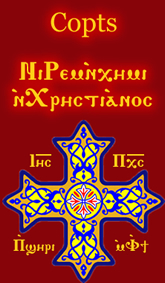
The Holy Synod of the Coptic Orthodox Church of Alexandria is the highest Orthodox authority in the Coptic Orthodox Church of Alexandria. It formulates the rules and regulations regarding matters of the church's organisation and faith.
From the time of St. Boniface, especially during periods of revival of religious and ecclesiastical life, synods were frequently convened by the bishops of Germany, and sometimes by those of individual ecclesiastical provinces. As the German bishops were, on the one hand, princes of the Holy Roman Empire, and the emperor was, on the other, the superior protector of the Roman Church, these synods came to have no little importance in the general ecclesiastical and political development of Western Christendom. Two general imperial synods were held in Augsburg.
In the Roman Catholic Church, a plenary council is any of various kinds of ecclesiastical synods, used when those summoned represent the whole number of bishops of some given territory. The word itself, derived from the Latin plenarium, hence concilium plenarium, also concilium plenum. Plenary councils have a legislative function that does not apply to other national synods.
In the canon law of the Roman Catholic Church, an administrator of ecclesiastical property is anyone charged with the care of church property.

Precedence signifies the right to enjoy a prerogative of honor before other persons; for example, to have the most distinguished place in a procession, a ceremony, or an assembly, to have the right to express an opinion, cast a vote, or append a signature before others, to perform the most honorable offices.












